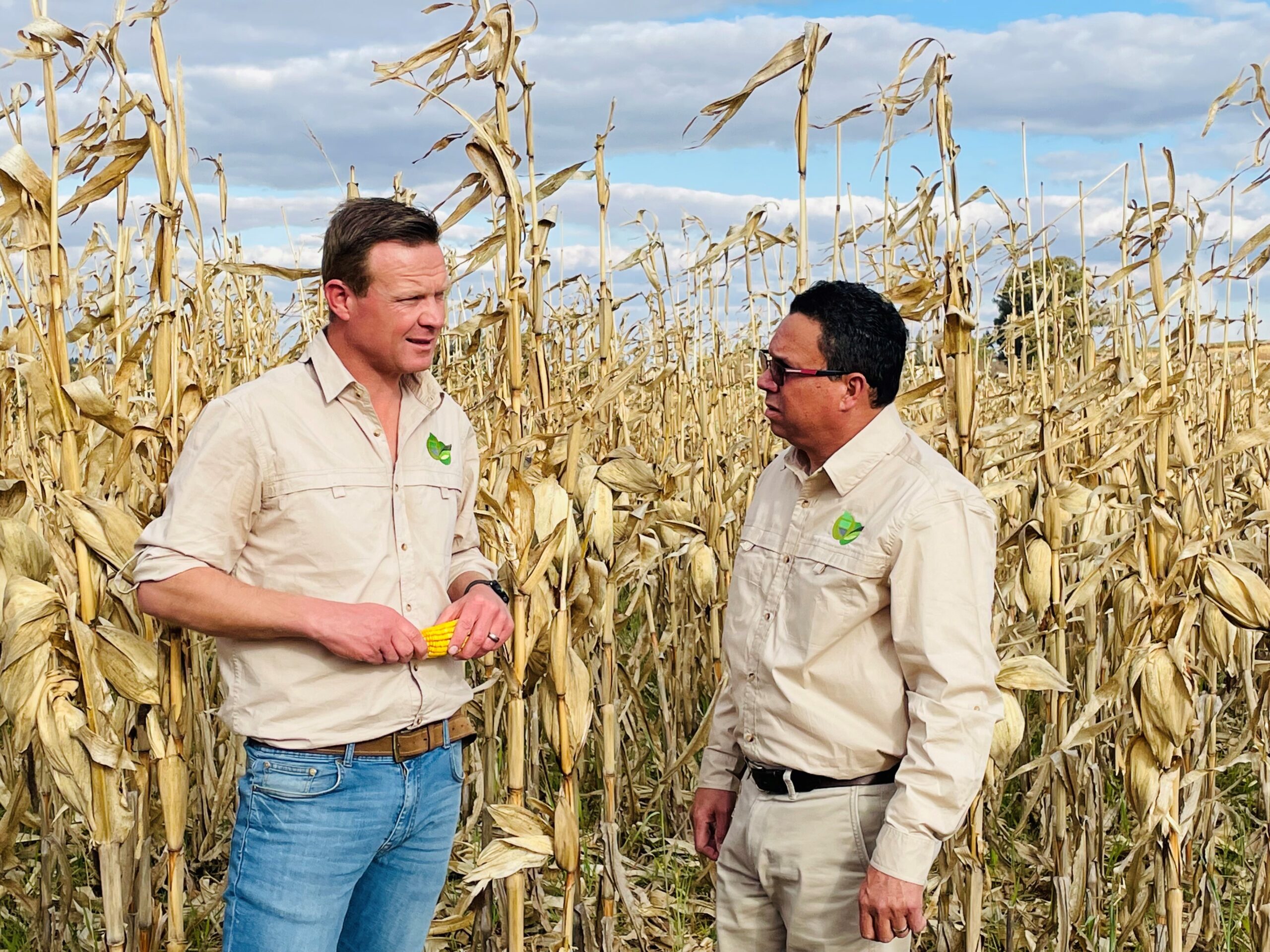Over the past three summer rainfall production seasons, an innovative alliance has given growers access to sustainable crop solutions, technical expertise and extremely favourable commercial terms. As a result, participating growers’ collective input costs were reduced by almost R13 million.
Access to funding remains a challenge for all growers, regardless of the size of their farming operation or the crops they grow. Rising interest rates and the problems currently engulfing the Land Bank are only making a bad situation worse.
As leaders in agriculture who are expected to foresee and timeously address future challenges, Die Kragspan partners have since 2018 worked on an alliance model that would boost grower sustainability.
Johan Nienaber, Regional Director (North) at InteliGro, explains that the mandate of Die Kragspan alliance between InteliGro and VKB is to collectively harness resources to minimise growers’ input costs, while optimising the quality and quantity of their outputs through technical expertise. “Growers not only want to see results in their fields, they also want to see it in their bank accounts,” Nienaber rightly notes.
A change in financial fortunes throughout the season is exactly what Die Kragspan’s commercial offering has been designed to achieve, says Executive Director of VKB Bertie Smith. “The 0% surcharge, 0.5% discount on Multigreen fertiliser and 1% discount on Dekalb seed, a 3% discount on InteliGro crop solutions, as well as a six-month period during which no interest is charged on growers’ VKB accounts are only possible because of the wholehearted support of our trusted suppliers.” This support allowed Die Kragspan to collectively save growers R7.1 million on input costs in the 2021/2022 season. “This supports the initiative to address the sustainability of our growers jointly and substantially,” adds Nienaber.
Die Kragspan’s commercial offering is crafted from scratch every year to respond to the changing needs of the grower. In the alliance’s first two seasons it only applied to summer row crops. In 2021/2022 potatoes were added and in the upcoming season, the offering is expanded to include pome and stone fruits. The deferred terms are designed to support growers’ purchasing patterns. The physiological development of row crops, for instance, requires three rounds of crop-solution purchases, while potatoes, stone and pome fruits need continuous protection against pests and diseases.
The deferred terms on the latter can therefore extend to a maximum of 120 days, while interest on row-crop purchases can be deferred by up to six months.
According to Nienaber, Die Kragspan is founded on the concept of trusted business partners who support growers on all fronts. “In terms of technical support, growers have access to training, reliable pest and disease data, spray clinics and crop-solution trials. The aim is to enable growers to make the best possible decisions with their trusted business partners. This results in improved yield quantity, quality and profitability, as well as environmentally friendly farming practices.”
Die Kragspan casts a wide net, emphasises Smith. “Right from the outset Die Kragspan team ensured that our offering would be relevant to all growers in our network. Inclusivity is the alliance’s motto, because only by being inclusive can one truly advance the cause of food security and the sustainability of our growers.”
Die Kragspan had a relatively modest start but continues to develop in response to growers’ needs. In addition to the expansion into pome and stone fruits, the next step involves tending to the growers in Limpopo. “Our plan is to identify four areas in Limpopo and to go out there and really listen to what growers need,” says Nienaber. “We want to understand how Die Kragspan offering should be adapted to meet the needs of citrus, tobacco, table-grape and vegetable producers, be it in terms of financing, technical expertise or favourable commercial offerings with regards to crop solutions.”
The latter is a strategic step for VKB, whose operations had traditionally been confined to the Free State. “We have decided that growth for us will come through expansion into other provinces, as well as increased involvement in crop solutions,” says Smith. “The alliance with InteliGro is the ideal vehicle for both ambitions, as well as a way for us to recognise local growers as food producers, stewards of the soil and businesspeople.”
Best of all is the fact that agriculture and food security in South Africa are by far the biggest beneficiaries of this creative approach.









